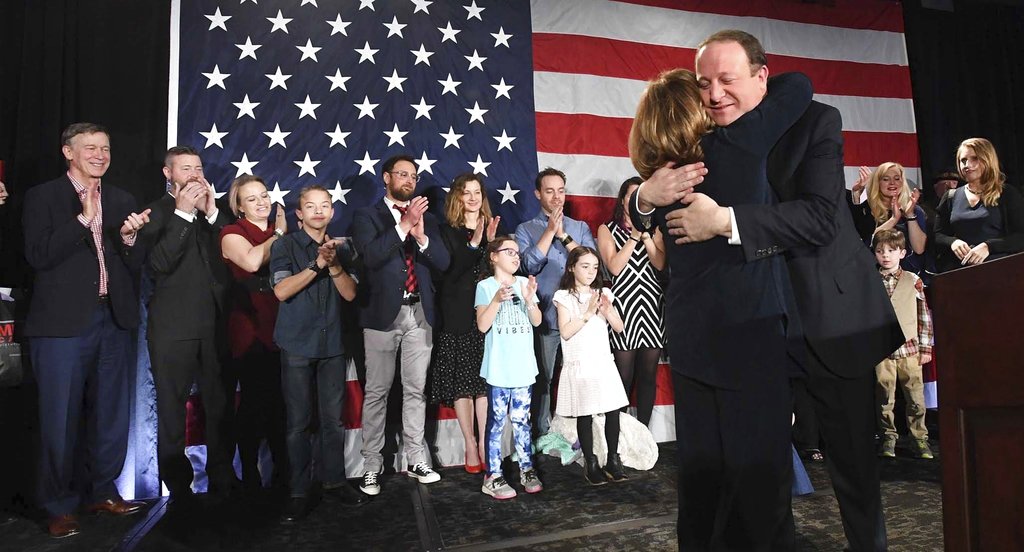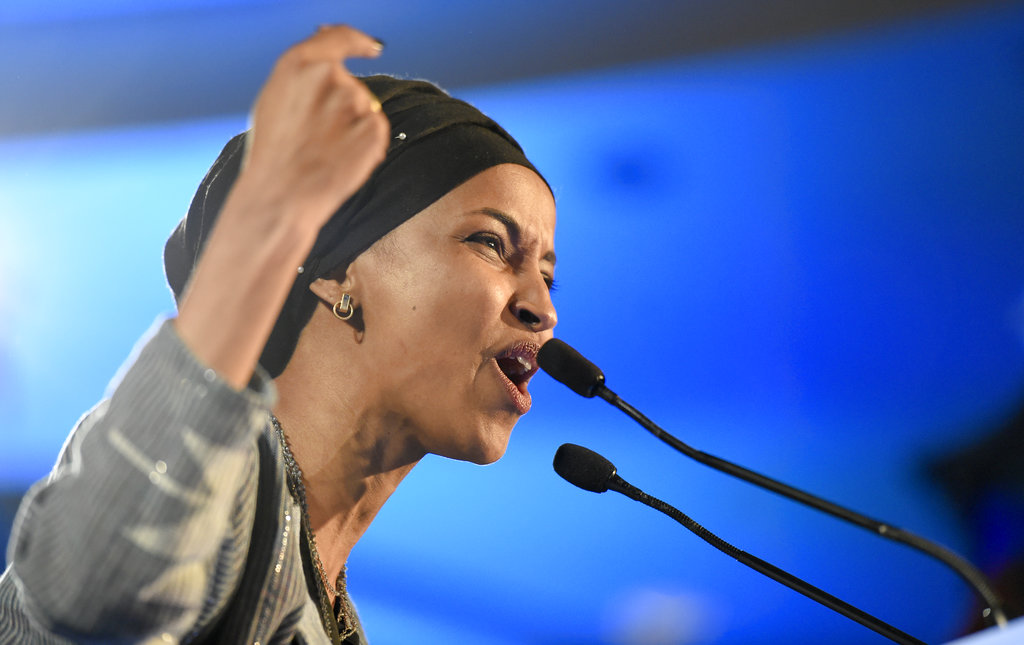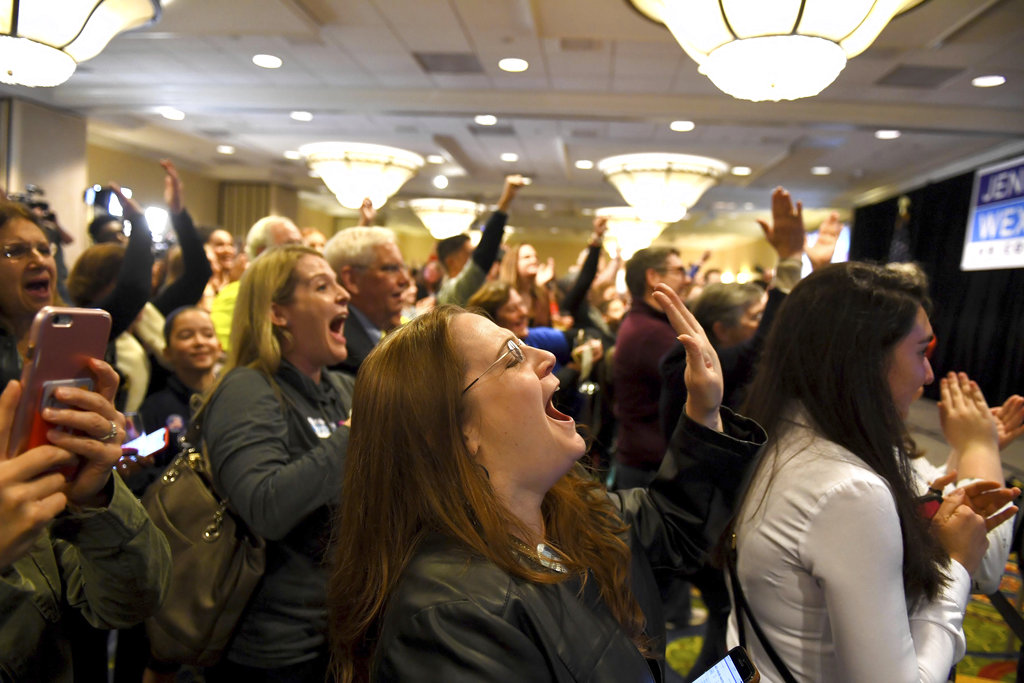What is already the most diverse Congress ever will become even more so after Tuesday’s elections, which broke barriers of race and gender.
For the first time, a pair of Native American congresswomen are headed to the House, in addition to two Muslim congresswoman. Massachusetts and Connecticut will also send black women to Congress as firsts for their states, while Arizona and Tennessee are getting their first female senators.
Ilhan Omar, who won in Minnesota’s 5th Congressional District, and Rashida Tlaib, from Michigan’s 13th Congressional District, became the first Muslim women to be elected to Congress.
Michigan Democrat Tlaib and the Minnesota Democratic-Farmer-Labor Party’s nominee Omar will secure their respective seats in strongly Democratic districts following primary victories earlier this year.
In addition to being one of the first Muslim women in Congress, Omar will also be the first Somali-American Congresswoman. She came to the US more than two decades ago as a refugee. She will take the seat vacated by Minnesota Representative Keith Ellison, the first Muslim elected to Congress.
Daughter of Palestinian immigrants, Tlaib will fill the seat formerly occupied by Michigan Democratic Rep. John Conyers, who left office last year amid sexual misconduct accusations.
Only two other Muslims, both men, have been elected to Congress. They are currently serving in office.
Several will represent districts that are majority white and that have been historically conservative, their victories a rejection of conventional wisdom on electability and the effects of gerrymandering that have historically assigned elected officials of colour to represent minority communities.
“None of us ran to make history,” Pressley told supporters in her acceptance speech on Tuesday. “We ran to make change. However, the historical significance of this evening is not lost on me. The significance of history is not lost on me.”
Half a century ago this week, New York’s Shirley Chisholm was elected the first black woman in Congress, and several of the black women elected on Tuesday have said their campaigns were inspired by her example.
New Mexico Democrat Deb Haaland and Kansas Democrat Sharice Davids were elected the first two Native American women to serve in Congress.
Democrat Mike Espy, who will face Mississippi Republican Rep. Cindy Hyde-Smith in a December runoff, could become the state’s first black senator since Reconstruction.
And regardless of who wins in Arizona’s competitive Senate race, the state will elect either Republican Martha McSally or Democrat Kyrsten Sinema as the state’s first woman to serve in the chamber. Also in the Senate, Republican Marsha Blackburn will become Tennessee’s first woman senator.
Georgia candidate Stacey Abrams, a Democrat, was in a fierce battle to become America's first black woman governor, while Democrat Andrew Gillum narrowly lost his bid to become the first black governor of Florida.
Idaho gubernatorial candidate Paulette Jordan also lost her race to become the country’s first Native American governor.
The Council on American-Islamic Relations (CAIR), the nation’s largest Muslim advocacy and civil rights group, welcomed the historic string of victories by the American Muslim candidates nationwide in the midterm elections.
“We congratulate the successful American Muslim candidates nationwide, whose victories demonstrate the strength of our political system and the growing positive role of American Muslims at every level of our society,” CAIR National Executive Director Nihad Awad said.
More than 90 American Muslims ran for office this year at the local, state and national level.
According to CAIR and Jetpac, a group that seeks to build a strong American Muslim political infrastructure and increase American Muslims' influence and engagement, more than 40 candidates advanced to the midterm elections.
New York Democratic congressional nominee Alexandria Ocasio-Cortez won her general election race easily and became the youngest woman ever in Congress.
Ocasio-Cortez, who turned 29 last month, had defeated New York Democratic Rep. Joe Crowley, among the top Democrats, in the primary election earlier this year in a stunning victory.
Daughter of Puerto Rican parents, Ocasio-Cortez had previously worked as an organizer on Vermont independent Senator Bernie Sanders’s presidential campaign.

Colorado Governor-elect Jared Polis hugs his Lt. Gov.-elect Dianne Primavera during his victory speech in downtown Denver on Tuesday. AP
In another first, Colorado Democratic US Representative Jared Polis will be the next governor of the state, becoming the nation’s first openly gay man elected to the governor’s office.
Polis will succeed Democratic Gov. John Hickenlooper. Oregon Democratic Governor Kate Brown, who identifies as bisexual, is already the first openly LGBT person to be elected as governor. Former New Jersey Gov. Jim McGreevey came out as gay before he stepped down from office in the early 2000s.
Polis was one of several LGBT candidates who ran for governor this cycle, along with Brown in Oregon, Vermont Democrat Christine Hallquist and Texas Democrat Lupe Valdez.
The high-profile midterm cycle that produced a record number of women contenders and candidates of colour means a number of winners will take office as trailblazers.
The inclusive midterm victories bode well for future election cycles, said Kimberly Peeler-Allen, co-founder of Higher Heights for America, a national organisation focused on galvanising black women voters and electing black women as candidates.
“This is going to be a long process to get us to a point of proportionate representation, but tonight is a giant step forward for what leadership can and will eventually look like in this country,” Peeler-Allen said.
Some of Tuesday’s black female pioneers, like Illinois nurse and Democrat Lauren Underwood and Connecticut teacher and Democrat Jahana Hayes, were first-time candidates. Others, like Massachusetts’s Ayanna Pressley, were political veterans. Most were considered longshots.














